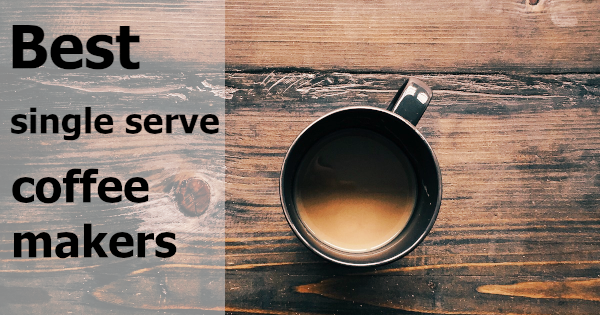Like millions of Americans across the country, I love welcoming each new day with a cup of delicious coffee. It gives me energy, joy and smile. One of our readers sent an interesting question whether it is healthy and safe to drink coffee on an empty stomach.
This post contains references to products. We may receive compensation when you click on links to those products, at NO charge to you. Please visit this page for our Affiliate Policy.
Can I drink coffee on an empty stomach? Is it safe or healthy to drink coffee before eating?
Owly Choice reader Erica
Thank you, Erica, for your thoughtful question. I definitely understand your concern whether it is okay to drink coffee on an empty stomach.
For the majority of my life, I had been drinking coffee in the morning, even before breakfast. I was not alone.
It appears that over 65% of Americans drink coffee at breakfast hours, as reported by the National Coffee Association and the Specialty Coffee Association of America. Only 30% of Americans drink coffee between meals. Merely 5% drink coffee at a meal time.
Since so many people are used to drinking a cup of coffee first thing in the morning, one more word of caution is in place: coffee should NOT be consumed on an empty stomach. Let me explain why.
Coffee consumption by time of day
Benefits and potential impact of coffee consumption
Benefits of k-cups: a super useful convenience 🏆
Coffee is a beloved beverage in America. It is a morning fuel of choice among the majority of the people on earth. Coffee is great for so many reasons.
→ #1. Contains antioxidants which may help fight disease and ageing of body cells
Coffee contains antioxidants which are believed to fight disease and the ageing of body cells. Consuming a couple of cups of coffee each day is believed to reduce the risk of dementia, type 2 diabetes, Parkinson’s disease, cirrhosis and certain types of cancers.
→ #2. Caffeine can help boost our mood and energy levels
As you can imagine, coffee also contains caffeine. Caffeine acts as a stimulant for the brain cells, improving our mood and helping us to feel more alert and energized. Caffeine also seems to have a positive impact on long-term memory retention.
→ #3. Coffee is filled with neuro-protective and anti-inflammatory properties ☕
Coffee has neuro-protective and anti-inflammatory properties. Scientific studies show that coffee intake is associated with lower rates of developing multiple-sclerosis.
→ #4. The flavor is just delightful
In addition to the benefits listed above, who does not enjoy immersing in a pure happiness of rich coffee flavors?
Why you should not drink coffee on an empty stomach?
Consuming too much coffee, though, comes with its downs. Coffee consumption has been linked to an increase in blood pressure, and a rise in the body’s low density lipoprotein (LDL) cholesterol level. Also, drinking coffee in excess can lead to anxiety, panic attacks, insomnia, and caffeine dependence.
There are reasons why it might be better not to drink coffee on an empty stomach. Here’s why.
→ #1. Coffee can stimulate the production of hydrochloric acid in our bodies – acid reflux and other gastric problems
Coffee stimulates the production on hydrochloric acid in the stomach, an enzyme that is naturally released in food digestion.
The natural acidity of the coffee, in combination with the acidity of the stomach can, in the long run, damage a stomach lining.
In time, this can cause stomach ulcers, gastritis, indigestion and acid reflux.
→ #2. Coffee may increase anxiety and irritation
Drinking coffee on an empty stomach can also increase negative effects of caffeine, causing irritability and anxiety. When there is nothing else in your stomach, the absorption of coffee happens more easily and more quickly. The stimulating effects of caffeine are magnified.
As Harvard reports, consuming coffee on an empty stomach can cause shaking, jitters, and a sudden increase in heart rate. More than that, it can also contribute to dehydration.
Studies have already shown that caffeine is linked to symptoms of anxiety and panic attacks, like restlessness, trembling, accelerated heart rate and flushed face. Especially in the case of people who have already been diagnosed with depression and anxiety issues, the consumption of coffee should be done with utmost caution.
→ #3. The best time to drink is mid-day, when cortisol levels are lower
The best time for drinking coffee is actually not in the morning! When we wake up in the morning, our cortisol levels are already high. There’s no need for additional stimulants.
Nutrition experts advise that we should consume our caffeine in the mid-morning or in the early afternoon.
Cortisol is a hormone that is released naturally by the body as we wake up, making us feel alert and ready for a new day. Cortisol is responsible for regulating our immune response, metabolism and stress response, too. Drinking coffee in the morning can interact with the natural effects of cortisol and can actually make us feel more anxious and stressed.
Hence, it makes no sense to drink coffee in the morning. A cup of coffee in the mid-morning or in the afternoon, when cortisol levels begin to dip, can be more effective.
What is the best time to drink coffee?
Health experts say that the best time for drinking coffee is actually in the mid-morning or in the afternoon. Laura Cipullo, registered dietitian and author of “Women’s Health Body Clock Diet” said that coffee should be consumed 3 to 4 hours after waking up. This is when the cortisol levels drop and you get to enjoy the stimulating effects of coffee.
These are some of the reasons why health experts recommend that we should eat solid food before drinking coffee. Having something else in the belly apart from just coffee, can protect the inner linings of the stomach from the harmful effects of the hydrochloric acid.
If eating in the morning is not feasible, adding milk or cream to coffee can help. Though may not be helpful for the overall health, those additives can ameliorate the effects of consuming caffeine on an empty stomach.
Don’t drink coffee to late, either!
Remember though not to drink coffee too late in the day either! The effects of caffeine can be felt up to 6 hours after consumption, and can interfere with you sleeping.
What do you think?
Thank you, Erica, for your question. We thoroughly enjoyed answering it, and we hope our readers find it helpful, too. If you have a question, please feel free to contact us at Twitter, Facebook or via our contact form.
When is your most favorite time to drink coffee? What do you feel after a cup of coffee?
Let us know in the comments!



I usually consume two cups of coffee each day, in the morning and afternoon. But I was completely unaware that coffee has a major influence on the health.Thanks for the very good article. I like you blog and read it every day.
Hi, Karla,
Thank you very much for your thoughtful note. Two cups of coffee each day seems to be a good balance. As a matter of fact, there are some really good health benefits coming out of drinking coffee twice a day (in moderation). Among others, coffee reduces the likelihood of many diseases and it slows down the aging process of body cells.
You are doing great! Just be aware that drinking coffee on an empty stomach may come with consequences long term!
Thank you for reaching out, and keep us posted on your favorite coffee drinks and coffee machines!
-Owl